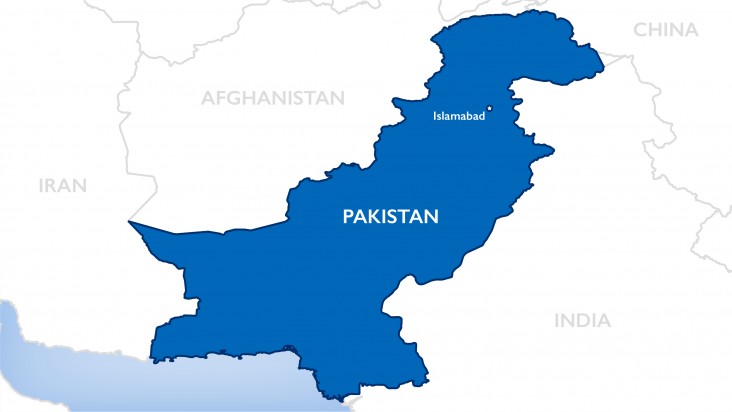Home » What We Do » Working in Crises and Conflict » Stabilization and Transitions » Where We Work » Closed Programs » Pakistan
- What We Do
- Agriculture and Food Security
- Democracy, Human Rights and Governance
- Economic Growth and Trade
- Education
- Environment and Global Climate Change
- Gender Equality and Women's Empowerment
- Global Health
- Humanitarian Assistance
- Transformation at USAID
- Water and Sanitation
- Working in Crises and Conflict
- Disaster Assistance
- Stabilization and Transitions
- Where We Work
- Afghanistan
- Armenia
- Bosnia and Herzegovina
- Burkina Faso
- Colombia
- Ethiopia
- Iraq
- Libya
- Malaysia
- Mozambique
- Niger
- Nigeria
- Sudan
- Ukraine
- Closed Programs
- Afghanistan
- Albania
- Angola
- Bolivia
- Bosnia & Herzegovina
- Burma
- Burundi
- Chad
- Colombia
- Croatia
- Cuba
- Côte d'Ivoire
- Democratic Republic of Congo
- East Timor
- Guatemala
- Haiti
- Honduras
- Indonesia
- Iraq
- Kenya
- Kosovo
- Kyrgyz Republic
- Lebanon
- Liberia
- Mali
- Nepal
- Nicaragua
- Nigeria
- North Macedonia
- Northern Cameroon
- Pakistan
- Peru
- Philippines
- Rwanda
- Serbia and Montenegro
- Sierra Leone
- Somalia
- South Sudan
- Sri Lanka
- Sudan
- Syria
- Tunisia
- Uganda
- Venezuela
- West Bank/Gaza
- Yemen
- Zimbabwe
- Background
- Criteria for Engagement
- Multi-Media
- Opportunities
- Our Stories
- Where We Work
- Conflict Mitigation and Prevention
- Countering Violent Extremism
- Disaster Risk Reduction
- Peacebuilding and Reconciliation
- Recovering From Crisis
- Resilience
- Tech Challenge for Atrocity Prevention
- Women, Peace, and Security
- World Humanitarian Day
- U.S. Global Development Lab
Speeches Shim

Supporting stability and security, countering violent extremism and building a foundation for political and social development in conflict-prone communities in Pakistan.
WHY USAID/OTI WAS IN PAKISTAN
USAID/OTI launched its Pakistan program in 2007 to help extend the writ of civilian authorities into ungoverned tribal areas along the Afghan border where violent extremist organizations controlled territory. USAID/OTI activities, under the Pakistan Transition Initiative (PTI), strengthened trust between tribal communities and the civilian government in support of the U.S. Government’s foreign policy priority to counter violent extremism in the most difficult and vulnerable areas of the country. In 2013, USAID/OTI launched the Pakistan Expanded Regional Stabilization Initiative (PERSI) to address violent extremism in Southern Punjab and Karachi.
USAID/OTI’S ROLE IN PAKISTAN
- In the newly merged districts, formerly known as the Federally Administered Tribal Areas (FATA) and Khyber Pakhtunkhwa (KP), lack of confidence and trust in government institutions could fuel violent extremism. In response, USAID/OTI partnered with nascent government agencies to implement small-scale service delivery projects, such as drinking water systems, vocational training, and school rehabilitation. These projects were implemented through participatory processes that strengthen the relationship between local authorities and their constituents.
- In places like Southern Punjab and Karachi where violent extremism has historically been a challenge, USAID/OTI developed and empowered a diverse network of individuals, organizations and government leaders to advocate for and implement community and regional CVE initiatives.
PROGRAM HIGHLIGHTS
- Over the lifespan of the program, USAID/OTI gathered over 21,000 individuals in community consensus meetings to prioritize local needs and supported the Government of Pakistan (GoP) in executing nearly 1,700 infrastructure projects to address those needs.
- USAID/OTI curtailed the financing of extremist groups in Southern Punjab through “safe charity” initiatives. These initiatives used media campaigns and group trainings that encouraged citizens to ask questions about the intended recipients of their donations, which thereby reduced financial support to extremist groups. A majority of training participants reported changing their donation practices as a result of these activities, including 80 percent of female participants and 59 percent of male participants.
- USAID/OTI programming ended in September 2019, but the USAID/Pakistan Mission continues to build upon USAID/OTI’s work through the new Community Resilience Office (CRO) with programming in the same regions. Staffed with Mission personnel who supported USAID/OTI programming, the CRO has been further buttressed by USAID/OTI-provided technical assistance, IT resources, and workshops on adaptive program management and CVE methods.
Related Sectors of Work

Comment
Make a general inquiry or suggest an improvement.